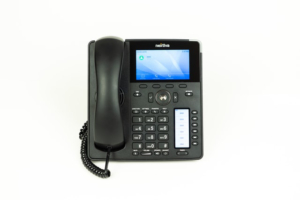Is the BT ISDN Switch Off Happening?
Are you aware of the BT ISDN switch off that’s just around the corner? Don’t worry if you haven’t. Check out our guide below for a breakdown of everything you need to know about the ISDN switch off and how you can prepare for this new era of business telecommunications.
What is the PSTN and ISDN switch off?
BT announced in 2020 that they are moving all of their customers from the old analogue public switched telephone network (PSTN) to a fully digital network. The plan is to turn off the entire PSTN (and ISDN) network in 2025.
PSTN is the traditional telephone network that carries analogue voice data over copper wired lines and has been used since the late 1980s. ISDN (Integrated Services Digital Network) is a digital platform that also came into use in the 1980s that is used to not only transmit voice date but video and other data too.
However, technology has advanced a lot since the 1980s and these technologies aren’t capable to deliver the volume or quality of voice data needed in today’s digital world. It’s time for change.
Why is it being switched off?
There’s no denying that PSTN has been at the core of the UK’s phone network for decades. Meanwhile, ISDN provided the fastest digital connections over the 1980s, 90s and 00s.
However, the broadband connections of today have meant that ISDN systems simply can’t compete anymore – despite ISDN lines improving over each decade, they are still more or less on par with telephone lines that have been around since the 1800s!
The main reason behind BT’s ISDN switch off decision is due to financial reasons; why keep updating outdated systems when they can concentrate on more up to date technology?
With the growth of smartphones, Zoom and the cloud, we’ve seen how much technology has changed in recent years and has outgrown the ISDN infrastructure. Moving to a fully digital network means there’s no longer any need for telephone lines hung across streets and a maze of copper lines underground. It’s time for IP technology to take to the stage.
Benefits of IP Technology
VoIP (Voice over Internet Protocol) and SIP (Session Initiation Protocol) are IP (Internet Protocol) technologies that will become the future digital network that we’ll use to make our phone calls after the ISDN switch off. Whether you’re a small or large business, here are some of the benefits of using hosted VoIP technology:
- Cost-Effective – There’s no need for masses of on-site equipment, you only pay for as many users as you need and calls are made through internet connections.
- Easy to set up – Seeing as there isn’t a need for lots of on-site equipment, setting up and managing an IP system is a much simpler job than a traditional telephone system.
- Flexibility – The technology allows you to easily add and remove users as you need. As long as you’ve got an internet connection, you can have a number and that means you don’t have to worry about your physical location.
What do you need to do?
Despite the ISDN switch off taking place in 2025, it’s always good to plan ahead and not get caught out.
Remember not to focus on just phone calls before setting up VoIP technology – you’ll need to check over everything that’s connected to your phone lines such as door entry systems or alarms. Also start thinking about moving your communications to the cloud and embrace making video calls over the internet using Zoom or Teams if you haven’t already.
Whether you work remotely or run an office for your business, making sure you’re prepared for the BT ISDN switch off with help you get the most out of this new age of technology.











